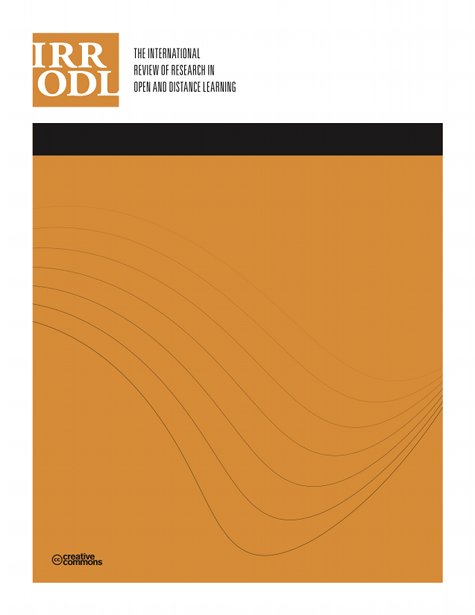
An investigation of collaboration processes in an online course: How do small groups develop over time?
ARTICLE
Namsook Jahng
IRRODL Volume 13, Number 4, ISSN 1492-3831 Publisher: Athabasca University Press
Abstract
This study investigated communication patterns and behavior in problem-solving groups in a graduate online course. An inductive qualitative analysis method was employed to analyze 732 messages that were retrieved from small group forums. The current study identified a temporal pattern of group development was in comparison with existing theoretical models: the traditional group development model (Tuckman, 1965; Tuckman & Jensen, 1977) and the punctuated equilibrium model (Gersick, 1988; 1991). All the groups had two working phases and three decision-making points. The temporal pattern of group behavior was close to the phase transition concept of Gersick’s model. Some groups tended to undergo Tuckman’s stages, but their development stages were not necessarily sequential or hierarchical. Thus, it is concluded that Gersick’s model could be more useful for researchers and instructors to better understand and assist online students in problem solving collaborative activities.
Citation
Jahng, N. (2012). An investigation of collaboration processes in an online course: How do small groups develop over time?. The International Review of Research in Open and Distributed Learning, 13(4), 1-18. Athabasca University Press. Retrieved August 9, 2024 from https://www.learntechlib.org/p/49312/.
Keywords
References
View References & Citations Map- Bereiter, C., & Scardamalia, M. (2003). Knowledge building environments: Extending the limits of the possible in education and knowledge work. In A. Di Stefano, K.E., Rudestam & E.R. Silverman (Eds.), Encyclopedia of distributed learning (pp. 269–272). Thousand Oaks, CA: Sage.
- Dillenbourg, P., Baker, M., Blaye, A., & O’Malley, C. (1996). The evolution of research on collaborative learning. In E. Spada & P. Reiman (Eds.), Learning in humans and machine: Towards an interdisciplinary learning science (pp. 189-211). Oxford:
- Fisher, B.A. (1970). Decision emergence: Phases in group decision-making. Communication Monographs, 37, 53–66.
- Francescato, D., Porcelli, R., Mebane, M., Cuddetta, M., Klobas, J., & Renzi, P. (2006). Evaluation of the efficacy of collaborative learning in face-to-face and university contexts. Computers in Human Behavior, 22(2), 163-176.
- Gersick, C.J. (1988). Team and transition in work teams: Toward a new model of group development. Academy of Management Journal, 31, 9–41.
- Gersick, C.J. (1991). Revolutionary change theories: A multilevel exploration of the punctuated equilibrium paradigm. Academy of Management Review, 16(1), 10-36.
- Glaser, B.G. (1992). Emergence vs. Forcing: Basics of grounded theory analysis. Mill Valley, CA: Sociology Press.
- Glaser, B.G., & Strauss, A. (1967). The discovery of grounded theory: Strategies for qualitative research. Chicago, IL: Aldine.
- Jahng, N., & Bullen, M. (2012). Exploring group forming strategies by examining participation behaviours during whole class discussions. European Journal of Open, Distance and E-Learning.
- Jahng, N., Nielsen, W., & Chan, E.K.H. (2010). Collaborative learning in an online course: A comparison of communication patterns in small and whole group activities. Journal of Distance Education, 24(2), 39-58.
- Johnson, D.W., Johnson, R.T., & Stanne, M.B. (2000). Cooperative learning methods: A meta-analysis. Miinneapolis, Minnesota: University of Minnesota.
- Johnson, S.D., Suriya, C., Yoon, S.W., Berrett, J.V., & LaFleur, J. (2002). Team development and group processes of virtual learning teams. Computers& Education, 39(4), 379-393.
- Jonassen, D.H. (1997). Instructional design models for well-structured and ill-structured problem-solving learning outcomes. Educational Technology: Research and Development, 45(1), 65-94.
- Krathwohl, D. (1998). Methods of educational and social science research: An integrated approach (2nd ed.). New York: Addison-Wesley Educational.
- Mabrito, M. (2006). A study of synchronous versus asynchronous collaboration in an online business writing class. American Journal of Distance Education, 20(2), 93-107.
- McGrath, J.E. (1991). Time, interaction, and performance (TIP): A theory of groups. Small Group Research, 22(2), 147–174.
- McGrath, J.E., & Tschan, F. (2004). Temporal matters in social psychology: Examining the role of time in the lives of groups and individuals. Washington, DC: American Psychological Association.
- Merriam, S. (1988). Case study research in education: A qualitative approach. San Francisco: Jossey-Bass.
- Salmon, G. (2002). E-tivities: The key to active online learning. London: Kogan Page.
- Smith, R.O. (2008). The paradox of trust in online collaborative groups. Distance Education, 29(3), 325–34.
- Tubbs, S. (1995). A systems approach to small group interaction. New York: McGraw-Hill.
- Tuckman, B.W. (1965). Development sequence in small groups. Psychological Bulletin, 63, 348–399.
- Tuckman, B.W., & Jensen, M.A.C. (1977). Stages in small group development revisited. Group and Organizational Studies, 2, 419-427.
- Vygotsky, L. (1978). Mind in society: The development of higher psychological processes (Trans. M. Cole). Cambridge, MA: Harvard University.
- Walton, K.L.W., & Baker, J.C. (2009). Group projects as a method of promoting student scientific communication and collaboration in a public health microbiology course. Bioscience, 35(2), 16-22.
- Wang, Q. (2010). Using online shared workspaces to support group collaborative learning. Computers& Education, 55(3), 1270-1276.
- Wheelan, S., Davidson, B., & Tilin, F. (2003). Group development across time: Reality or illusion? Small Group Research, 34(2), 223-245.
- Wheelan, S.A., & Lisk, A. (2000). Cohort group effectiveness and the educational achievement of adult undergraduate students. Small Group Research, 31, 724-738.
- Yin, R. (2003). Case study research: Design and methods (3rd ed.). Thousand Oaks, CA: Sage.
- Zhang, K., Peng, S.W., & Hung, J. (2009). Online collaborative learning in a project-based learning environment in Taiwan: A case study on undergraduate students’ perspectives. Educational Media International, 46(2), 123–135.
These references have been extracted automatically and may have some errors. Signed in users can suggest corrections to these mistakes.
Suggest Corrections to ReferencesCited By
View References & Citations Map-
The preferred learning modes of online graduate students
Olabisi Kuboni, University of the West Indies Open Campus
The International Review of Research in Open and Distributed Learning Vol. 14, No. 3 (Jun 03, 2013) pp. 228–250
These links are based on references which have been extracted automatically and may have some errors. If you see a mistake, please contact info@learntechlib.org.
